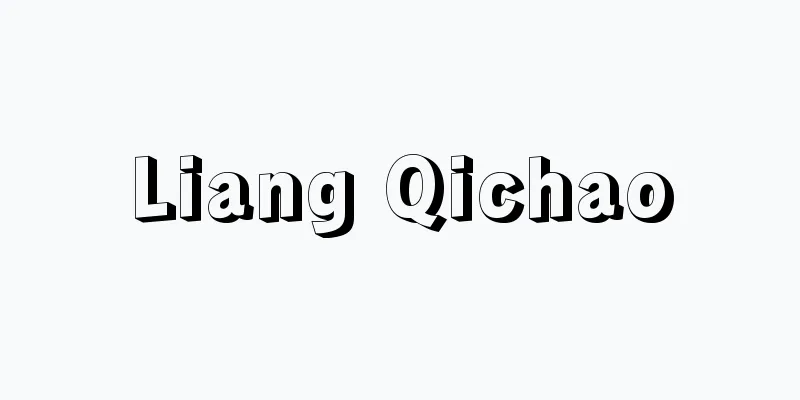Liang Qichao

|
The first bourgeois reformist and scholar in the late Qing Dynasty of China. His pen name was Ren Gong or Yin Bing Room Master. He was born in Xinhui County, Guangdong Province. He is called "Kangliang" because he led the reform and self-strengthening movement together with his teacher Kang Youwei. In 1896, he presided over the "Current Affairs News" in Shanghai, published "Reform and Self-Strengthening Movement," edited the "Western Politics Series," and made an effort to introduce European learning. The following year, in 1897, he lectured at the Current Affairs School in Changsha, actively promoting the reform and self-strengthening movement. In 1898, he went to Beijing and participated in the Hundred Days Restoration, known as the Wuxu Reform. After the failed coup d'état by Empress Dowager Cixi and others, he went into exile in Japan. In Japan, he edited the Qing Yibao and then the Xinmin Congbao, and took a constitutionalist and pro-emperor stance, which drew criticism from the democratic revolutionaries. However, he introduced European bourgeois social, political, and economic theories, which had a considerable impact on the intellectual class of the time. After the Xinhai Revolution, he returned to China in October 1912, and based on the Constitutional Party, he organized the Progressive Party, defended Yuan Shikai, and became the Justice General of the Yuan government. He later collaborated with Duan Qirui to become the Minister of Finance, and during the May Fourth Movement (1919), he opposed the slogan "overthrow the Kongjiadian (overthrow Confucianism)." His representative works include "An Introduction to Academic Studies in the Qing Dynasty," "Methods of Chinese Historical Research," and "History of Pre-Qin Political Thought," which are collected in the "Yinbingshi Collection" and "Yinbingshi Writings." [Ryuzo Yamashita] [Reference item] | |Source: Shogakukan Encyclopedia Nipponica About Encyclopedia Nipponica Information | Legend |
|
中国、清(しん)末民初のブルジョア改良主義者、学者。号は任公または飲冰(いんひょう)室主人。広東(カントン)省新会県の生まれ。師の康有為(こうゆうい)とともに変法自強運動をしたので「康梁」とよぶ。1896年、上海(シャンハイ)で『時務報』を主宰し「変法通議」を発表し、『西政叢書(そうしょ)』を編集し、ヨーロッパ学芸の紹介に努めた。翌1897年に長沙(ちょうさ)の時務学堂で講義し、変法自強運動を積極的に鼓吹した。1898年北京(ペキン)に行き、百日維新である戊戌(ぼじゅつ)の変法に参加。西太后(せいたいこう)らのクーデターで失敗し、日本に亡命した。日本では『清議報』、続いて『新民叢報』を編集し、立憲保皇の立場をとり、民主革命派からは批判された。しかし、ヨーロッパのブルジョア的な社会・政治・経済学説を紹介し、当時の知識階級にかなり大きな影響を与えた。辛亥(しんがい)革命後の1912年10月帰国し、立憲党を基盤に進歩党を組織し、袁世凱(えんせいがい)を擁護し袁政府の司法総長となった。その後、段祺瑞(だんきずい)と合作し、財政総長となり、五・四運動(1919)時期には打倒孔家店(儒教打倒)のスローガンに反対した。代表的著作は『清代学術概論』『中国歴史研究法』『先秦(せんしん)政治思想史』などで『飲冰室合集』『飲冰室文集』に収録されている。 [山下龍三] [参照項目] | |出典 小学館 日本大百科全書(ニッポニカ)日本大百科全書(ニッポニカ)について 情報 | 凡例 |
<<: Ryogenokan - Officials outside the government
Recommend
Kochi - Coach
[1] In ancient times, this area was the area aroun...
Margaretha
…The origin of this name is still unclear today, ...
Sanity Song
[1] An ancient five-character poem written by Wen ...
Buddha's name ceremony - Butsumyo-e
Also called Obutsu-myo (Buddha's name) or San...
Democracy - Minponshugi
Democratic thought in the Taisho period. This ter...
Tosk
...In addition to Albania itself, there are a few...
Geneva Disarmament Conference
The Disarmament Conference was held in Geneva in ...
Kizaemon Nozawa
A shamisen player of Gidayu-bushi. (1) First Gener...
Additional numbering - Oibanzuke
A ranking of plays that is issued when a new or co...
Maksim Grek
Around 1470 - 1556 A Greek monk and religious thin...
Kendang (English spelling)
A membraphone that takes the lead in Indonesian ga...
Kankyo - Kankyo
…Buddhism also followed this example and called t...
Ichijo (metalwork)
…There were also 14 branches and sects of Goto, k...
Flow - flow (English spelling)
Because liquids and gases do not have an inherent...
Port Hedland
The city is located in the northwest of Western Au...









